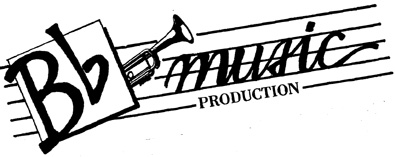

ANOTHER VIEW: a well improvised solo should simply become "another Tune", a new musical statement, stretched over the harmonic fabric of the original progressions.
Question: Why do so many jazz players use "licks"?
(1) Because they (inexperienced players) have spent hours practicing and memorizing other peoples solos. "Most favored passages", become licks!
(2) They buy "books of licks" and memorize them for the express purpose of regurgitating them during their favorite chord progressions.
(3) They are "TAUGHT" a scalar approach to improvisation - that is, for every "verticle chord" there is a corresponding "horizontal scale". Eg., ii > V > I , elicits a Pavlovian, scalar response. (I personally have reservations as to the concept of being able to "teach" composition or improvisation. We can lead students to the water, but they must drink).
(4) They view a "solo" as "a series of changes" which must be "filled-up" with "hip devices". Very often, the most valued and admired soloist is the one who is able to fit the most notes and/or ideas into the thirty two bar form.
(5) They have not yet developed the concept of "less is more".
(6) Most players evolve over many years - gradually being able to rid their solos of musical "ideas" and "materials" which are IRRELEVANT to the ideas with which they BEGAN the solo. I believe it is helpful to view an improvised solo in the same context as one would when writing a coherent paragraph. Of course, with the paragraph it is a simple matter to go back and edit irrelevant ideas. When we improvise a solo, there are no possibilities for editing!
In defense of "Licks", or abbreviated musical thoughts, it is difficult to truly develop (compositionally speaking) a coherent musical thought in a mere thirty two bars. But, it takes even greater skills to keep the listener "awake" for multiple choruses! (grin!)
No attempt to belittle nor disparage, here. Simply a compositional approach to improvisation.
Keep 'Em Flying!
Clyde
https://www.bflatmusic.com
Can anyone please explain to me the basics of improvizing? I have never really understood the concept of this miraculous skill. (elided)
PART ONE: HOW TO IMPROVISE
1. You "listen" to the rhythm section, which is playing a series of "changes" which are, more or less, unique for each tune. This series of chord progressions is the harmonic structure upon which we will hang our "new" melody.
2. Begin by "singing" along with the changes. You may simply want to "ornament" the old melody, at first, until you become more comfortable with the process. Don't forget the various elements involved in creating a good melody: a concept of a beginning, (idea) an "expansion" toward a culmination point, and a feeling of having "evolved" (arrived) somewhere. Sequence, imitation at various intervals, and other developmental techniques should be utilized.
3. Later, as your compositional skills grow, you may be able to improvise several choruses without any reference to the "original" melody - sometimes called, the "head".
4. One of the pitfalls, for the beginning improvisor, is to try to play everything one knows, within every chorus of every tune.
5. LESS IS MORE!
6. Equally sleep inducing, is the approach where one "lies in wait" for certain ISOLATED harmonic patterns - in order to play preconceived, or more likely, memorized "licks". (Often, what goes on "in between licks" is notably un-memorable).
PART TWO
The "other shoe" consists of developing your TRUMPET PLAYING skills to the point where you can instantly "realize" your "mental musical ideas" while playing.
PART THREE
If you are successful with PART ONE, PART TWO will no doubt follow. If not........!
Yesterday, I received a query from someone who wanted to know how to "improvise like Bobby Hackett". Here is my response.
query: There's no book or secret?
(me) Nope - just lots of experience, with the resultant "good taste"!
query: What's he doing when he plays a phrase then goes up or down 1/2 or 1 step and replays it then goes up or down 1/2 to 1 step and replays it with a slight variance? What's that called?
Composers call it "Sequence".
Where can I learn it?
By listening to fine composers. So many "Jazz" players are too busy trying to fill up their solos with "sheets of sound", "hip licks" and "weird scales" ,they have memorized. (Devices that, unfortunately, no-one wants to hear, save for music majors!) ( : > ) )
A good improvisor simply invents a new piece of music to fit the "old" chord progressions.
Just a different viewpoint!
Clyde Hunt
PS - Anyone remember Louie's "Boppinpoof Song"?
Ask Clyde